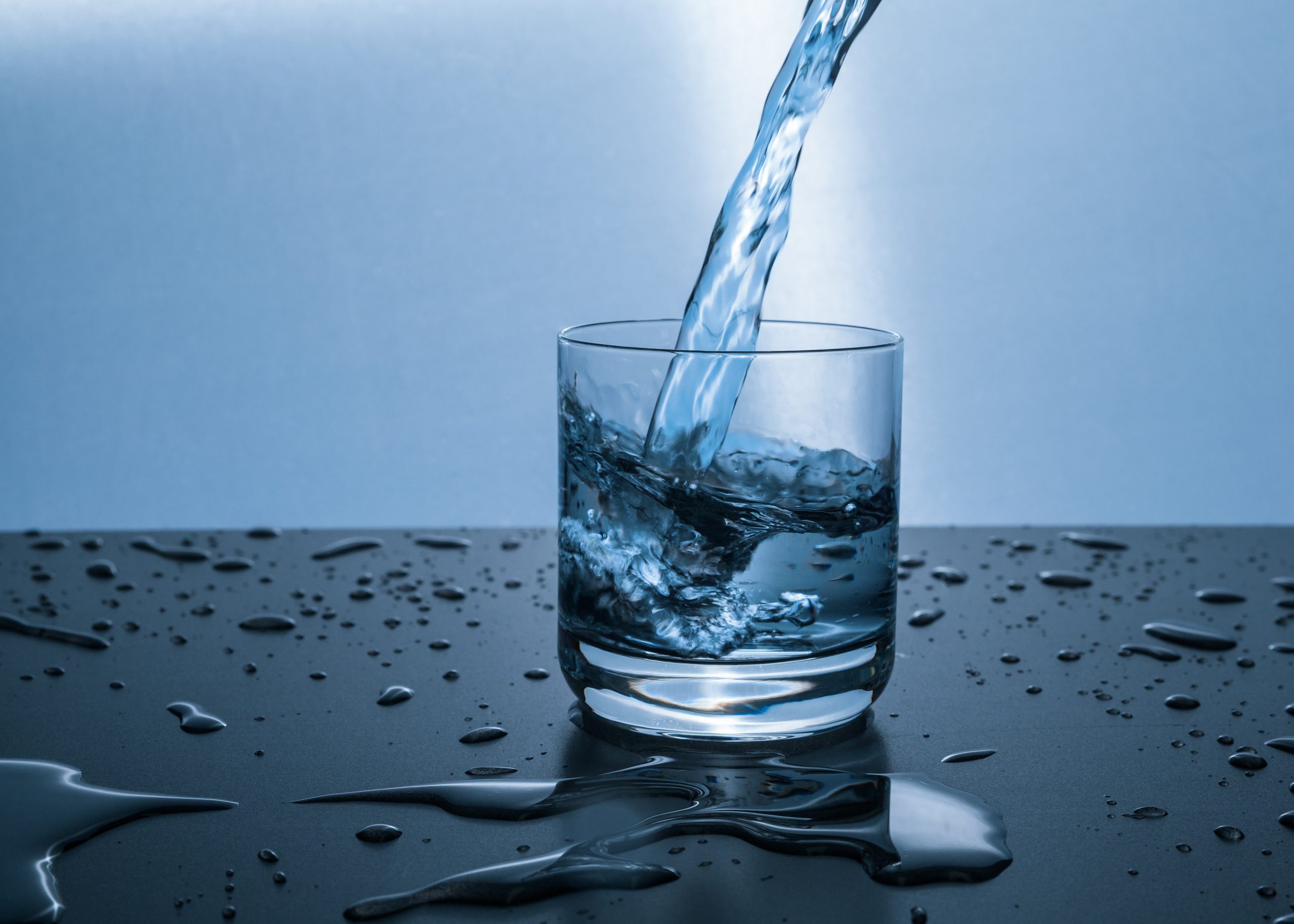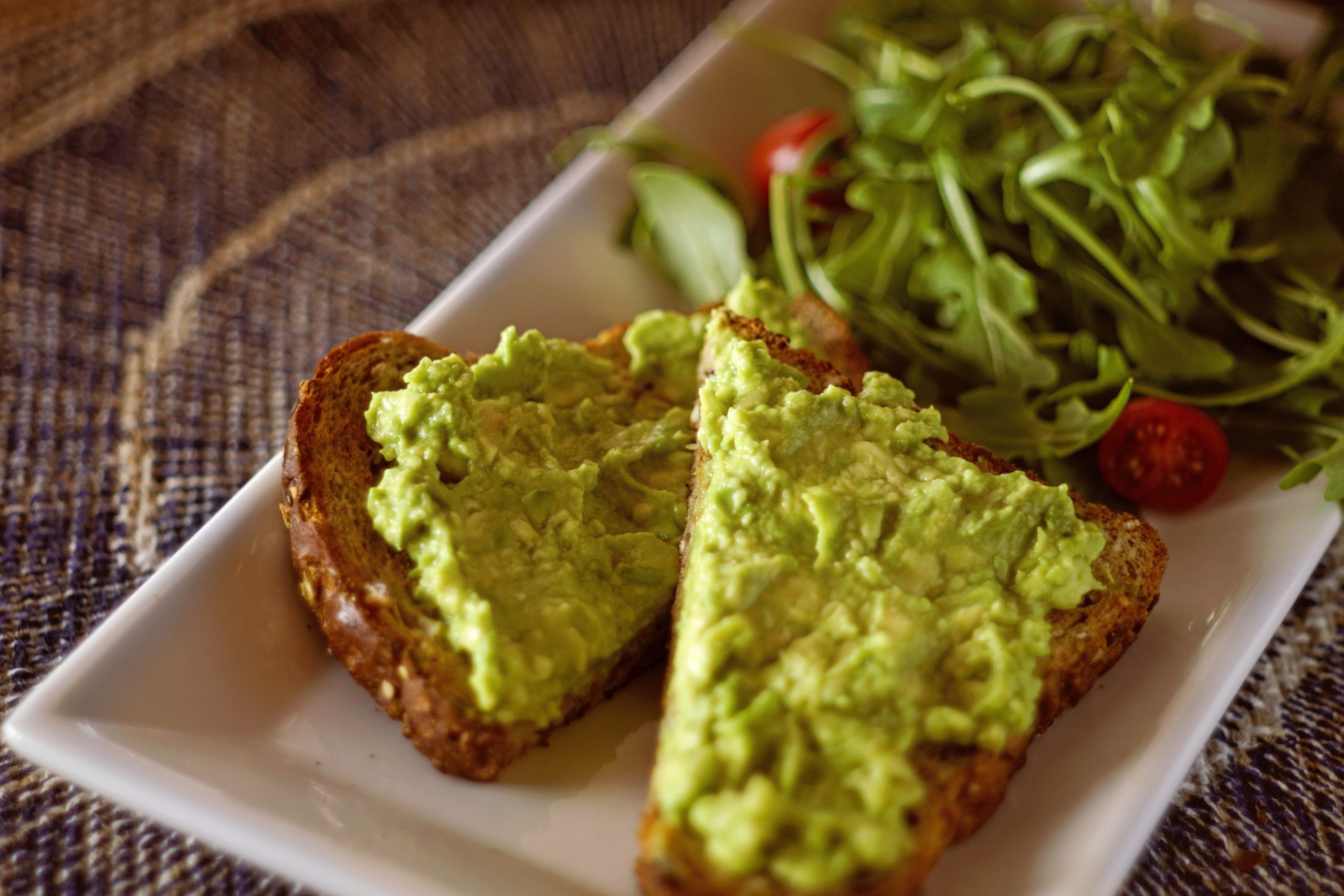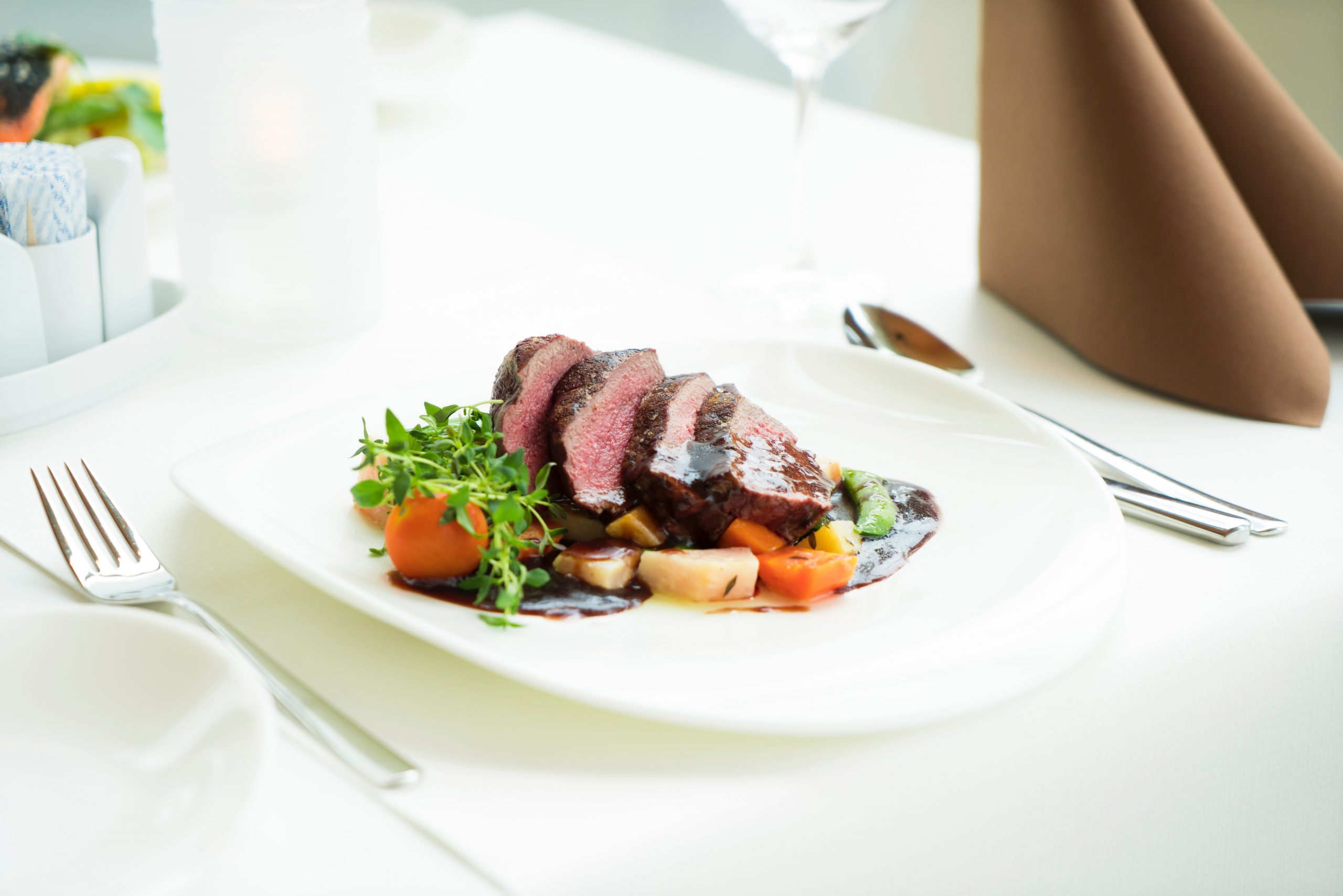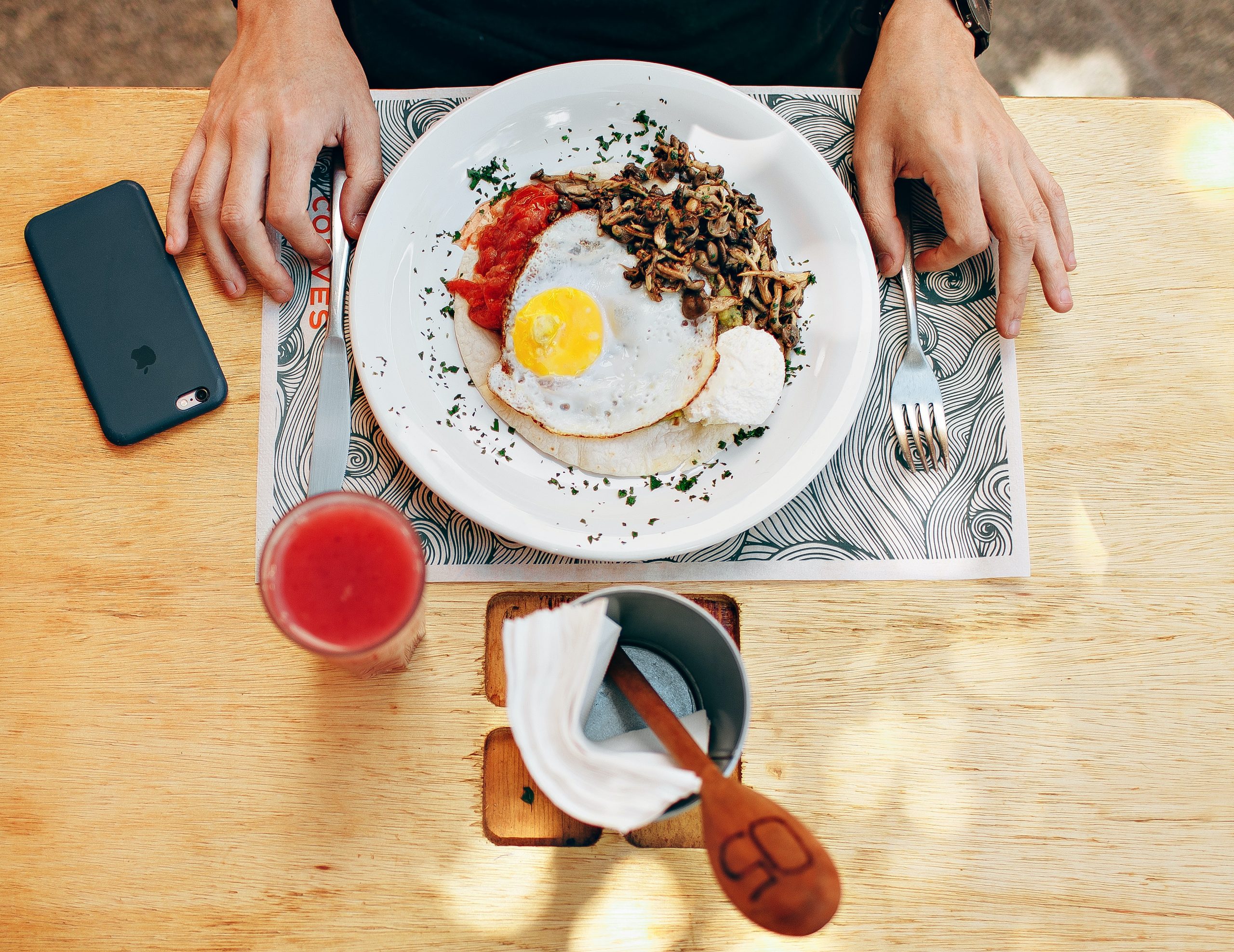Gone to regime hell with the stressful news of the past few weeks? Do you eat the stress with sweets, fatty foods and pastries, or do you rather not eat with coffee and other stimulants? Did he even switch to alcohol?
All this is very harmful for the body, which is already trying to neutralize the stress, and you do not help it at all, you just burden it with work.
Therefore, it is urgent to start restoring the diet. As boring as it may sound, believe me, it will provide many benefits. Nutritionist Ekaterina Maslova shared with The Fashion Vibes an effective plan for its restoration.

Ekaterina Maslova, nutritionist
Step 1: Drink more water

The first thing to start during stress is the restoration of the water regime. And this is more important than food. Because during stress (especially acute – for example, we learn the news that shocked us), the blood thickens 4-6 times. And if a person already has blood (and this can happen to those who do not have a habit of drinking water), then in ordinary people there is a risk that it will be called “blow”.
When there is no water in the body, the blood thickens because the fluid is not replenished. And if at that moment a stressful event occurs (same news), the blood thickens even more – and sharply. This thick blood can lead to the formation of blood clots, which can clog blood vessels in the heart or brain and lead to a heart attack or stroke – this sometimes happens during shock.
For this reason, it is necessary to start drinking water regularly during stressful times. Ordinary pure water: because anything that is not water for our body is food. Carry a bottle of water with you everywhere so you don’t forget to drink, and set a timer on your phone, preferably every 30 minutes. The timer rang – drink 2-3 sips from the bottle.
Drinking water in glasses is useless. When we drink large amounts of water at one time, the body cannot absorb it and as a result it all passes into the bladder. In order for the water to be absorbed, it must be drunk in small portions. Optimally like this: you have a glass or a bottle of water next to you on the desktop, the timer “rattles”, you take 2-3 sips. And so – during the day: every half hour – a few sips of water.
Another good option is to drink a glass of water 20 minutes before meals. It helps regulate appetite. Because many, especially those who do not have the habit of drinking water constantly, do not distinguish between thirst and hunger and often confuse thirst with hunger. A glass of water 20 minutes before a meal will help you understand how much you really want to eat.
Step 2: Start a healthy breakfast

The truth is that the stress hormone cortisol, which is powerfully produced during stress, is also a daily hormone: It is released daily at a certain time of the day, regardless of stress. It works together with the sleep hormone melatonin: in the morning the amount of melatonin decreases and cortisol increases. And if we don’t get up with the alarm clock, it’s cortisol that wakes us up. Its concentration is highest in the morning. If a person is also stressed, their cortisol level simply rounds off. Therefore, the main task is to get up in the morning, drink warm water to start all digestive processes and have breakfast in 20 minutes. Breakfast should be eaten within the first hour after waking up.
Why is it so important? If you don’t have breakfast, or worse, if you drink coffee on an empty stomach, you’re putting a strain on the body instead of helping it. On the other hand, a full breakfast is a real help to the body during stress: after it, the level of insulin, which kills cortisol, rises – precisely for this reason, during stress we crave sweets and any fast carbohydrates. . They instantly raise sugar and insulin levels, which automatically lowers cortisol. True, if this is done with the help of fast carbohydrates, the positive effect will be very short-lived: the insulin level will rise quickly, but will fall just as quickly (and cortisol will rise again).
That’s why it’s important to have a full breakfast, not just breakfast. Say “no” to rolls, sandwiches, steamed (not boiled) oatmeal or grits. And “yes” to a combination of proteins (scrambled eggs, chicken, fish), complex carbohydrates (unpolished grains – optimally buckwheat, quinoa, brown, red, black rice, etc.) and a small amount of fat. For example, it could be whole-grain toast with avocado, lightly salted fish, and a hard-boiled egg. After such a breakfast, the level of sugar in the blood gradually rises and falls gradually – this helps the body to get rid of cortisol for quite a long time.
And one more important clarification. If you usually do cardio exercises or yoga in the morning, in normal life it is better to arrange them on an empty stomach. But in a stressful situation, breakfast should be a priority. So it’s better to have breakfast in the morning and transfer the workout to another time.
Step 3: Eat your main meal in the morning

In times of stress, people often set up this routine: they skip breakfast, they drink coffee – first with nothing, then coffee again, this time with a candy or a cookie. Later, the often-missed lunch actually stifles the appetite with another serving of coffee – and so on all day. And by the evening, the body can not stand it, it breaks down – and the systematic destruction of the contents of the refrigerator begins with pizza, rolls and everything else. That is, in the morning the body does not have enough food – and in the evening there is a breakdown.
It turns out a pyramid: nothing in the morning – a lot of food in the evening. In relieving stress, this pyramid needs to be reversed: breakfast is the most satisfying meal, lunch should be very filling, and dinner should be light, providing only 20% of the daily food. It is recommended to eat 80% of all food before 16:00. Even at 16-17 hours it can be a light snack – for example, 5-10 nuts and an apple or yogurt without additives. And after dinner, it ideally consists of a large green salad with protein (fish, meat, poultry, eggs, tofu or other vegetable protein). This is the most physiological nutrition, because the human body is not designed for heavy meals in the evening.
It is often said that you do not want to eat when you are stressed. It is clear that if you eat at night, there will be no hunger in the morning. But 3-4 days – at most a week to stop eating dinner (to be more precise, finish all meals before 8 pm) and I guarantee you will start waking up hungry in the morning. Hunger in the morning is a sign of health and effort should be made for it. And if you really want to skip a meal, let it be dinner. Nothing terrible will happen from this, especially if there is an afternoon snack before that.
I want to say this to the argument of “I can’t help myself, I can’t stop stressing”. In doing so, you’re helping the stress finish off your body with your own hands. Realize all the harms of this, pick yourself up, stop abusing caffeine, nicotine, alcohol and change your diet. By doing this, you will greatly help your body recover as quickly as possible – and this is true self-care.
Source: People Talk
Richard Stock is an author at “The Fashion Vibes”. He is a lifestyle expert who provides readers with the latest news and trends in the world of fashion, beauty, food, and travel. With a sharp eye for detail and a passion for writing, Richard offers unique insights and perspectives on the topics he covers.





.png)